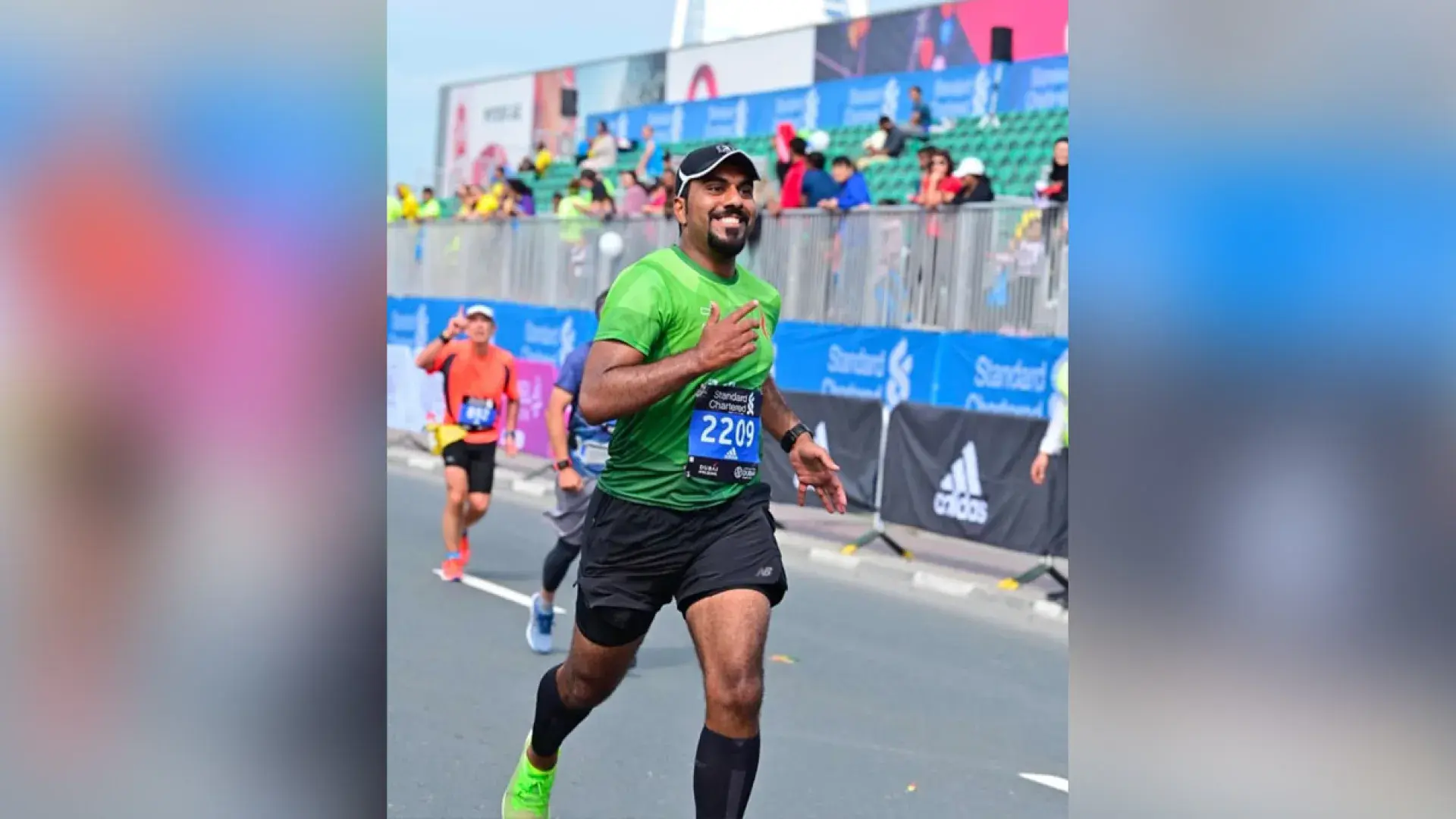
Abdulrahman Sabbagh, HPEd '20 returns to the city where his love of running began to raise money for the MGH Institute
Completing a marathon is a monumental achievement, one Abdulrahman Sabbagh has done 17 times. When he crosses the finish line at the 2025 Boston Marathon for his 18th marathon, he will be combining his passion for running with his professional passion by running for the MGH Institute, where he received a Master’s in Health Professions Education (HPEd) in 2020.
On Monday, April 21, he will be raising money for the Dr. Charles A. and Ann Sanders IMPACT Practice Center as a member of Team IHP, supporting the clinical education in the Center which involves working with clients as well as learning via simulation with simulated patients. He understands how important it is to bridge the gap between theory and practice. While pursuing his studies, Sabbagh had the opportunity to complete a fellowship in clinical simulation at the STRATUS Center for Medical Simulation at Brigham and Women’s Hospital which allowed him to improve in his critical thinking, decision-making and teamwork skills.
“The program equipped me with the knowledge and skills to enhance healthcare education and simulation, which has become a major focus of my career,” said Sabbagh.
Returning to Boston to run for Team IHP holds additional significance since it’s where his running journey began, and he holds immense gratitude for the city that sparked it all. During one of his first weekends in Boston, Sabbagh stumbled upon the Adidas RunBase near the Boston Marathon finish line on Boylston Street. Curious about the group runs happening there, he decided to join them the following week and that decision changed his life.
From that moment on, Sabbagh was hooked. He considers the day he participated in his first-ever race on April 15, 2017, as his “running birthday.” It was the Boston Athletic Association (BAA) 5K, a tradition held every year on the Saturday before the Boston Marathon. He fell in love with the sport and worked his way up to completing his first marathon at the Miami Marathon less than a year later in January 2018.
Sabbagh believes that running has had a profound impact on both his physical and mental well-being, which in turn helped him achieve his goals beyond the racecourse. Those achievements include serving as the Medical Director for the Riyadh Marathon and World Athletics, a Sports Coach, a Race Director, an Adjunct Assistant Professor at Alfaisal University, a Section Editor for The Journal of Medicine, Law & Public Health, the Lead of the Physical Wellbeing Program at Riyadh Second Health Cluster, and a Consultant for the Saudi Disaster Medical Assistance Team (DMAT) under the Ministry of Health in Saudi Arabia.
In addition, Sabbagh works as an Attending Emergency Medicine Physician at Riyadh Second Health Cluster, where he is also a member of the Sports Medicine Training Committee for Sports and Exercise Medicine Fellowship. Beyond his medical and academic roles, he proudly serves as an ambassador for the Saudi Sports for All Federation (SFA), which operates under the umbrella of the Ministry of Sport in Saudi Arabia. Through this role, he actively promotes physical activity and well-being across Saudi Arabia, inspiring communities to embrace healthier lifestyles.
“I’m very grateful for the Boston community, the runners, and the experience I had because of running,” Sabbagh shared. “Running changed my life, not just physically but professionally as well. I’ve had so many successes, and I attribute much of that to the discipline and resilience I’ve built through running.”
When he completes the Boston Marathon, he will also be co completing his 6th Abbott World Marathon Major (WMM).
“There are only about 20,000 runners worldwide who have completed all six majors, and I believe I will be the first — or possibly the second — Saudi to do it,” he said proudly.
While many might assume that his 18th marathon will be easier, Sabbagh knows that Boston’s challenges — including the infamous Heartbreak Hill — require discipline, focus, and mental toughness.
“Like any other marathon runner, I got caught up in the feelings of preparing — feeling the suffering, the pain, and then the glory. It’s a rollercoaster of emotions,” Sabbagh shared.
His dedication to training is even more impressive given that it overlaps with Ramadan, the sacred month when Muslims fast from sunrise to sunset. To balance his commitments with his training during Ramadan, Sabbagh followed a carefully structured plan. He peaked at 20 miles before Ramadan and, during the four weeks of Ramadan, maintained his fitness by completing two 12-mile medium-long runs per week to sustain his weekly volume. After Ramadan, he is planning one final 21-mile-long run before beginning his two-three weeks taper in preparation for race day.
Through it all, Abdulrahman Sabbagh’s journey is a testament to the power of dedication, discipline, and gratitude — both to his sport and the city where it all began.
You can support his Boston Marathon run and the IMPACT Practice Center.
Do you have a story the Office of Strategic Communications should know about? If so, let us know.
